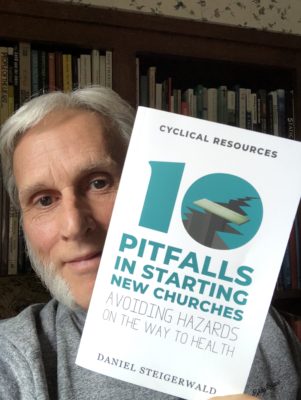Leadership Challenges in Missional Church Planting
 If you’re truly immersing in your local setting, you’re regularly encountering people who’ve decided they’re finished with church (the DONES) or who claim no religious affiliation at all (the NONES). The research tells us these populations are on the rise, perhaps eclipsing the 100 million mark in the US alone. These fellow humans experience shalom whether they know its Source or not. Much like you and me, they yearn to experience love, justice, community, hope, purpose, etc. They feel the deep angst of falling short, of not being enough or acceptable in their present state. And they’re just as stymied as we are about the fragmentation of our culture and the false promises of consumerism, civil religion and identity politics.
If you’re truly immersing in your local setting, you’re regularly encountering people who’ve decided they’re finished with church (the DONES) or who claim no religious affiliation at all (the NONES). The research tells us these populations are on the rise, perhaps eclipsing the 100 million mark in the US alone. These fellow humans experience shalom whether they know its Source or not. Much like you and me, they yearn to experience love, justice, community, hope, purpose, etc. They feel the deep angst of falling short, of not being enough or acceptable in their present state. And they’re just as stymied as we are about the fragmentation of our culture and the false promises of consumerism, civil religion and identity politics.
Some of these people are your friends and neighbors. Their lives rub against yours and create that ache you have to show them another way to be human – the way of Christ. You’re discerning what this could look like and what your part might be in it. Or you might already be underway with cultivating a new expression of church that NONES and DONES could readily inhabit. To capitalize on the potential before you, you know this sacred work will take much more than good intention, courage and entrepreneurial energy. Many obstacles dot the horizon, and you wish you could get a better bead on those that could slow or even take your initiative down.
What if you could identify some of the most common challenges faced by church-starters. And further, what if you could also take measures to disarm or reduce their effect?
It’s to that end that I’m offering a series of posts over the coming months. In these posts I attempt to describe and address (on some level) ten specific challenges team leaders typically encounter on the road to missional church planting? Ten is not a magic number (I actually whittled this down from an original list of twelve), but in my experience as a practitioner coach, mentor and trainer to many hundreds of church-starters these past 25 years, these in particular can adversely affect projects.
Let me begin with a succinct list of the challenges. In subsequent posts, I’ll address each challenge one at a time, providing a description of that challenge, a few suggested ways to engage it, and some key questions a team may want to process with a seasoned coach. I welcome input from practitioners along the way, as leaning into these is more an art than a science. One last thing worth noting is that the work of befriending and creating participative spaces for NONES and DONES is generally much slower-going than big-splash, event-based church planting. This reality when coupled with the challenges we’ll be covering underscores the critical need for point leaders to cultivate the interior “grit” or staying power to persevere. Starting a sustainable church that grounds its life in Jesus is a messy, often uphill journey. But the process doesn’t have to be soul-depleting.
And now the list. Here’s ten key challenges missional planters commonly face:
1. The core team has a superficial grip on missional theology and how to apply it.
2. Point leaders define themselves more by what they’re against than what they’re for.
3. The startup team lacks capacities to lead forward and steward the outward impulse.
4. Funding limitations and outside work demands restrict the point leader(s).
5. Point leader(s) undervalue cultivating a safe, developmental team ethos.
6. The team neglects to share the gospel and to cultivate safe spaces for awakening.
7. Leaders are poor at leading collaboratively and empowering diversity.
8. The startup initiative projects an attractional public face far too early.
9. Leaders fail to prioritize spiritual discernment in their decision-making.
10. The team adopts vague, imposed, or poorly-discerned progress metrics.
Again, I’ll expand on these one at a time in coming posts, so please feel free to leave any relevant comments or questions along the way (or email me: dan@artesiaresourcing.com).



